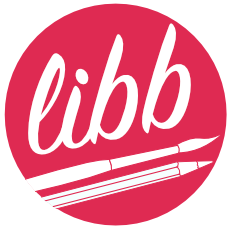Not something I thought of a lot when I was back in US since USA is… a pretty bureaucratic name by all means. But I just realized that some countries have really fascinating names in their local language
Like how China names itself Central/Middle country in a very grandiose way (as in, we are the center of the world), or Japan being “land of the rising sun”
Norway is quite literal: The way north.
It used to describe the coastline full of seaside trading towns before someone got the idea to make it a country.
The literalness also shows up in all the names for places in the country. They are 90% old spellings of “The place where people live”, “the field for cows to feed on”, “the settlement at the north of the fjord”, “upper farm”, “valley settlement”, and like 1837 places called “a place you can live”.
Well, we’re a bunch of states and we’re… united? And the continent is America (the north one). So USA.
More or less. No wait, screw them red states. Can we be the Divided States now?
Polska (Poland) comes from a word meaning “field”. Modern polish still has this word (pole)
France /François- land of the franks. The germanic tribe of the franconians that took over france as the western roman empire collapsed
“Scotland” is very literal. It’s the land of the Scots
In Scottish Gaelic - never the language of the whole area of the modern day country and a very small minority nowadays, but nonetheless a language that is uniquely Scottish and very influential on our history - it’s Alba. This one is kind of interesting, because it originally meant the entire island of Great Britain. “Scotland” in Scottish Gaelic therefore sort of meams “Scotland, England, and Wales”
Bavaria / Bayern. Comes from the baiuvari germanic tribe that used to be here.
Schwaben/ Swabia comes from the Suebi a germanic tribe
Saxony/ Sachsen - germanic tribe
Probably a myth but interesting none the less:
Scota, Iberia, Gaels, and Brutus for Britain
If we treat the medieval origin legends as literal history, the story goes far beyond just Scota — it ties the Gaelic and British peoples into a single sweeping migration narrative that connects Biblical, Egyptian, Scythian, Iberian, and Celtic threads.
⸻
📜 Medieval Storyline with Sources and Dates
- Historia Brittonum (c. 830)
This early British text, attributed to Nennius, combines the Scota legend with another powerful myth: that Britain itself was named after Brutus of Troy, the great-grandson of the Trojan hero Aeneas. According to this version, Brutus fled Troy after its fall, wandered through the Mediterranean, and finally landed in Albion (Britain), naming it after himself and becoming its first king.
⸻
- Lebor Gabála Érenn (11th century)
This “Book of Invasions” describes how Scota, daughter of an Egyptian Pharaoh, married Niul, who was connected to the legendary linguist Fenius Farsaidh. Their son, Goídel Glas, supposedly created the Gaelic language.
This Gaelic line migrated through Scythia and eventually reached Iberia (modern Spain and Portugal). In the myth, the people named the region Iberia after a leader named Ith, or in some versions, the name connects back to these same wandering Gaelic ancestors. From Iberia, the Milesians — Scota’s descendants — sailed to Ireland and Scotland, conquering the land and giving their name, Gaels (from Goídel Glas), to the people and Scotia (from Scota) to the land.
⸻
🌍 How Names Were “Transferred”
🏰 Iberia • In these legends, the Gaelic ancestors settled in Iberia before Ireland. Some texts claim the region took its name from Ith, a Milesian scout and leader, though historians see this as an invented connection. • This narrative frames the Iberian Peninsula as a stepping stone on the Gaelic migration path, reinforcing their ancient, far-ranging pedigree.
🏰 Gaels • The people are said to take their name directly from Goídel Glas, Scota’s son, who created the Gaelic language by mixing tongues during his wanderings. • “Gael” became synonymous with the Irish and Scottish Gaelic-speaking peoples, while “Scoti” or “Scotia” tied the name back to Scota herself.
⸻
⚔️ Brutus and Britain • In parallel, the Historia Brittonum and later Geoffrey of Monmouth’s Historia Regum Britanniae (12th century) tell how Brutus, the Trojan exile, landed in Britain and founded a new kingdom. • The legend says Albion was renamed Britannia after Brutus, giving the people their name — Britons. • Together, Brutus for Britain and Scota for Scotia formed a matched pair of noble origin myths that linked the whole British Isles to classical and Biblical civilizations.
⸻
🏺 Local “Evidence” and Sites • For Scota, places like Scota’s Grave at Slieve Mish in County Kerry are shown as proof she died fighting for the Milesians’ conquest of Ireland. • Some local traditions claim wells, hills, and burial mounds mark her passage. • For Brutus, the supposed site of his landing is sometimes pointed out around Totnes, Devon, or other coastal locations in southern England.
⸻
✅ If Taken as “True”
All of this together forms a grand medieval framework: • The Gaels trace their name to Goídel Glas, their land to Scota, and their early migrations through Scythia and Iberia. • The Britons claim descent from Brutus, a Trojan prince. • Both peoples are woven into a mythic genealogy that connects them to Egypt, Troy, Spain, and the Biblical world, boosting the prestige of medieval Irish and British kings by tying them to ancient global empires.
While modern historians and geneticists view these as legendary rather than literal, they remain some of the most powerful origin stories in medieval Celtic and British tradition.
Brasil, the name comes from Pau Brasil, a tree that has a deep red color, used to make dye and for its quite beautiful red wood. The word Brasil comes from brasa (ember), essentially means “tree that’s red like an ember”.
I was greatly surprised when I learned that the country is named after the tree and not the other way around
Bharat is original name of India, as set down in Article 1 of the Constitution, adopted in 1950, which states in English: “India, that is Bharat,…”[20] The term ‘Bharat’ with its origins in Sanskrit, holds a significant historical and cultural significance. Throughout India’s ancient history, the name ‘Bharat’ has been linked to various legends and events, contributing to its enduring narrative.[21]
According to ancient texts and scriptures, one of the earliest references to the name ‘Bharat’ dates back to the Rig Veda’s accounts of the legendary ‘Dasharajna’ or the Battle of Ten Kings. This epic confrontation involved King Sudasa of the Bharata tribe from the Trtsu Dynasty, ultimately leading to the tribe’s recognition and the land being termed ‘Bharat Varsha’ – the land of Bharata.
The Sanskrit word Bhārata is a vrddhi derivation of Bharata, which was originally an epithet of Agni. The term is a verbal noun of the Sanskrit root bhr-, “to bear/to carry”, with a literal meaning of to be maintained (of fire). The root bhr is cognate with the English verb to bear and Latin ferō. This term also means “one who is engaged in search for knowledge”.
This realm of Bharat, which has been referred to as Bhāratavarṣa in puranas - after Bharata, the son of Rishabha.
The country that lies north of the ocean and south of the snowy mountains is called Bhāratam there dwell the descendants of Bharata.
\—Vishnu Purana (2,3,1)
In the Sanskrit epic, the Mahabharat (200 BCE to 300 CE), a larger region of Indosphere is encompassed by the term Bharat.[28] Some other Puranic passages refer to the same Bhārata people, who are described as the descendants of Dushyanta’s son Bharata in the Mahabharata.
Here’s the answer: https://en.wikipedia.org/wiki/List_of_country-name_etymologies
I wouldn’t say it’s a definitive answer. While there’s no expert consensus on the etymology of Mexico, it’s often argued to mean the “place in the navel of the moon” in Nahuatl:
metztli (moon), xictli (navel or center) y co (place)
There’s no reference to that on the list even though it’s mentioned in another article:
France comes from the ‘franks’ which was both a kingdom and its population, the franks or francs, in French. The word is is supposed to mean ‘free man’ (one of the meanings, at least)
Switzerland means land of the people from Schwyz, which is one of the 3 founding “Cantons / States” of Switzerland. When going to war the old confederacy would wear white cross with red background (the flag of Schwyz) to distinguish themselves in battle. So in wider Europe they where known as Switzerland, specially because the Swiss Mercs were elite warriors and the most powerfull nobles would want to have the Swiss as their Guard (the Vatican still uses them today).
The real name of Switzerland though is Confederatio Helvetica. Which means the Helvetic Confederation. The Helvetic are a Celtic tribe that used to live in today’s Switzerland before the Romans took over and later the Alemans rolled in.
I put in a solid effort to come up with a Helvetica pun, but it just wasn’t there.
The Helvetica Confederation does not include the Serif region
There it is
Malaysia means The Land of Malay.
Portugal comes from “Portus Cale”. It was in the general area of the city of Porto. The word “Postus” and “Porto” mean port, as in a port for ships.
Germany: Deutschland. “Deutsch” comes from the word “people, tribe”. The oldest roots go back to the 8th century and the kingdom of Charlemagne, where “deodisk” (“the language of the common people”) was used to distinguish the Old German from “walhisk” (the medieval latin that the ruling class spoke).
This is a Deutschland. It’s a Land that deutschs.
SPRICH DEUTSCH DU HÜTTENSOHN!







